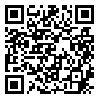Volume 7, Issue 3 (volume7, Issue 3 2019)
CPJ 2019, 7(3): 60-73 |
Back to browse issues page
Download citation:
BibTeX | RIS | EndNote | Medlars | ProCite | Reference Manager | RefWorks
Send citation to:



BibTeX | RIS | EndNote | Medlars | ProCite | Reference Manager | RefWorks
Send citation to:
Barghool S, Hadidi Tamjid N, Ahour T. Comparing the Effectiveness of Divergent Thinking and Metaphorical Thinking as two Creative Methods on EFL Learners' Critical Thinking. CPJ 2019; 7 (3) :60-73
URL: http://jcp.khu.ac.ir/article-1-3244-en.html
URL: http://jcp.khu.ac.ir/article-1-3244-en.html
English Department, Tabriz branch, Azad University, Tabriz, Iran , nhadidi@iau.ac.ir
Abstract: (6447 Views)
Creativity can play an important role in today's world, and especially in education. Using innovative approaches in teaching can help students cope with stressful situations and learn better and deeper but unfortunately, little value is given to creativity. The purpose of this study was to compare the effectiveness of divergent thinking and metaphorical thinking as creativity-training methods on critical thinking among English learners. The present study is an experimental study with pre-test and post-test and control group. The study population consisted of 45 TOEFL students in Jahade Daneshgahi in Tabriz University. The data were collected using Honey Critical Thinking Questionnaire, and for the data analysis covariance analysis was used. The results showed that although the critical thinking score in the divergent thinking group was higher than the metaphorical thinking score, this difference was not significant, but both methods were effective in enhancing students' critical thinking. Although more studies are needed to better understand and deepen the impact of creativity on critical thinking, the present study suggests that the use of creative methods can increase the sense of innovation and creativity and critical thinking in learners. Also teachers can use both creativity-training methods in teaching English
Type of Study: Research |
Subject:
Special
Received: 2020/03/29 | Accepted: 2020/05/30 | Published: 2020/05/30
Received: 2020/03/29 | Accepted: 2020/05/30 | Published: 2020/05/30
Send email to the article author
| Rights and permissions | |
 |
This work is licensed under a Creative Commons Attribution-NonCommercial 4.0 International License. |






